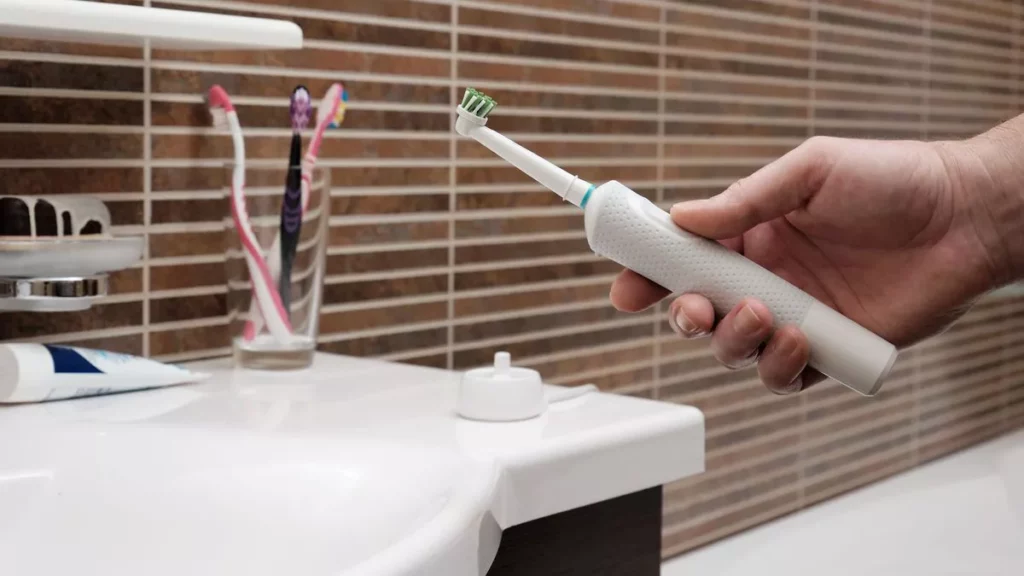Last Updated on: 11th December 2025, 09:51 am
Rotten wisdom tooth, we often hear about the discomfort during their emergence. Yet, less commonly known, these teeth can become troublesome when decayed. This article focuses on rotten wisdom teeth, discussing their symptoms, remedies, and care.
Understanding Rotten Wisdom Tooth
Wisdom teeth are the last teeth to appear in the mouth. This happens between the ages of 17 and 23, when all the other teeth have erupted and the space left is generally reduced. Wisdom teeth often cause pain as they erupt, due to a lack of space or damage to neighboring structures. However, pain can also be caused by an infected or rotten wisdom tooth. Due to the very posterior location of the tooth, the necessary oral hygiene is often not carried out since, on many occasions, people do not notice when these teeth appear and are unaware of their existence.
Why do Wisdom Teeth Rotten?
Teeth are damaged when they are attacked by decay. Caries are the formation of holes in the teeth, caused by the action of bacteria that feed on food remains. If these holes reach the nerve inside the tooth, severe pain occurs, and there is risk of developing a severe infection. Wisdom teeth can be particularly susceptible to decay when they are located in the very posterior area of the mouth, due to difficult access for proper oral hygiene.
Signs and Symptoms
When teeth are deeply decayed, symptoms may or may not be present. Sometimes, because caries occur slowly and progressively, the nerve of the tooth dies silently, without generating any symptoms for a long time, that is, until a severe infection occurs. Other times, there is tenderness and severe pain.
Some signs and symptoms of a rotten wisdom tooth are:
• Tooth sensitivity with hot or cold foods.
• Intense and spontaneous dental pain.
• Pain when biting or chewing.
• The discomfort of the tongue due to a hole in the wisdom tooth.
• Bad breath.
• Swelling and redness of the cheeks.
• In very advanced infections, it could present:
• Fever.
• Sore throat.
• Difficulty opening the mouth.
• Pain when swallowing food or saliva.
• General discomfort.
• Overall weakness.
Home Remedies for a Rotten Wisdom Tooth
Pain is a protective mechanism through which the body alerts us to damage or disease. Pain from a rotten wisdom tooth is evidence of advanced caries, a problem that requires timely dental treatment. In other words, there are no home remedies that definitively solve the pain caused by a rotten tooth, and avoiding a visit to the dentist will only make the problem grow worse. The following tips can help manage the pain while you make an appointment with your dentist:
• Take over-the-counter pain relievers.
• Put clove oil on the tooth.
• Make rinses with infusions of mint tea.
• Avoid very cold or very hot foods.
• Sleep with your head elevated using 2-3 pillows.
Professional treatment options
Treatment options for a rotten wisdom tooth vary according to the progress of the disease, the presence of infection, and the degree of tooth destruction. The available options are:
1. Root canal treatment:
Commonly, when discussing a compromised wisdom tooth, the immediate thought is its extraction. Nevertheless, for those who have already experienced tooth loss, considering the preservation of a wisdom tooth could offer advantages. By means of endodontic surgery, the nerve within the tooth is eliminated to alleviate discomfort, and a substance resembling rubber is employed to occupy the resulting space. This approach enables the retention of a tooth that will no longer be sensitive. However, it’s essential to note that carrying out endodontic procedures on wisdom teeth is frequently intricate due to their position at the back of the mouth and their internal configuration, which tends to be remarkably diverse and unpredictable
2. Tooth extraction:
There are several situations in which the extraction of a rotten wisdom tooth is indicated:
• When the wisdom tooth has no space to emerge.
• When the wisdom tooth is not fulfilling any function, that is, it does not have a partner in the opposite jaw that allows it to chew.
• When most of the tooth has been destroyed by caries and it is not possible to rebuild it.
• When its location or the shape of the roots does not allow a good root canal treatment.
In the case where a decayed wisdom tooth has become infected to the extent of triggering a severe infection or abscess, it is probable that along with the process of a root canal treatment or extraction of the tooth, there might be a requirement for pus drainage and administration of antibiotics. This is particularly relevant within the context of the tooth extraction healing process.
How to Prevent Cavities in Rotten Wisdom Teeth?
Wisdom teeth can be easily damaged if proper oral hygiene is not performed. The best way to prevent cavities in wisdom teeth is to brush your teeth 3 times a day with fluoride toothpaste, making sure to clean every posterior tooth. Going to the dentist every 6 months for a routine check-up will help detect the presence of wisdom teeth and their related problems.
When to See a Dentist?
If you experience sensitivity, severe dental pain, or any sign of infection such as those already mentioned, do not hesitate to see your trusted dentist soon. Remember that home remedies only help control pain but do not solve the cause, so a severe infection could occur.
Frequently Asked Questions
Does a decayed wisdom tooth cause pain?
When the gums around the top of a wisdom tooth become infected and inflamed, it can cause severe pain. Because the inflammation affects the muscles that control the jaw, opening the mouth can be painful and difficult. In addition, biting can cause discomfort since the pressure exerted by the upper molars can compress the inflammation.
What are the consequences of not removing a wisdom tooth affected by caries?
When wisdom teeth fail to emerge properly, they become trapped in the jaw, known as retention. Upon occasion, this situation can trigger an infection or even form a cyst capable of damaging the roots of other teeth or compromising the surrounding bone support
How long does it take to extract a rotten wisdom tooth?
You may need to have your wisdom teeth removed if they cause pain, grow crooked, or cause other oral health problems. Dentists sometimes recommend removing wisdom teeth preemptively, before problems have a chance to develop. This common oral surgery procedure takes approximately one hour to complete.
When is it necessary to remove a decayed tooth?
The dentist may advise the extraction of a tooth when the following occurs:
• Advanced dental caries (cavities)
• A fracture in the tooth
• A tooth stuck in the bone
• Teeth that are crowded
• A serious health problem in the gums
• Displaced teeth or other oral injuries
Share:
References
1.Burgess, L. (Mar 20, 2018). How to get rid of cavities: Home remedies and prevention. Medicalnewstoday.com. https://www.medicalnewstoday.com/articles/321259
2. Cavities/tooth decay. (Mar 19, 2022). Mayo Clinic. https://www.mayoclinic.org/diseases-conditions/cavities/symptoms-causes/syc-20352892
3. Clemons, A., & D. (Dec 29, 2022). How to get rid of cavities: Do home remedies work? Cleveland Clinic. https://health.clevelandclinic.org/how-to-get-rid-of-cavities/
4. Haghighi, A. S. (Jun 11, 2020).Tooth decay: Symptoms, causes, treatment, and prevention. Medicalnewstoday.com. https://www.medicalnewstoday.com/articles/tooth-decay
5. Higuera, V. (Nov 15, 2017).Tooth cavities. Healthline. https://www.healthline.com/find-care/articles/dentists/tooth-cavities
6. Seladi-Schulman, J. (Jul 30, 2020). Tooth decay stages: 5 stages and how to treat each. Healthline. https://www.healthline.com/health/dental-and-oral-health/tooth-decay-stages
-
Nayibe Cubillos M. [Author]
Pharmaceutical Chemestry |Pharmaceutical Process Management | Pharmaceutical Care | Pharmaceutical Services Audit | Pharmaceutical Services Process Consulting | Content Project Manager | SEO Knowledge | Content Writer | Leadership | Scrum Master
View all posts
A healthcare writer with a solid background in pharmaceutical chemistry and a thorough understanding of Colombian regulatory processes and comprehensive sector management, she has significant experience coordinating and leading multidisciplina...



















